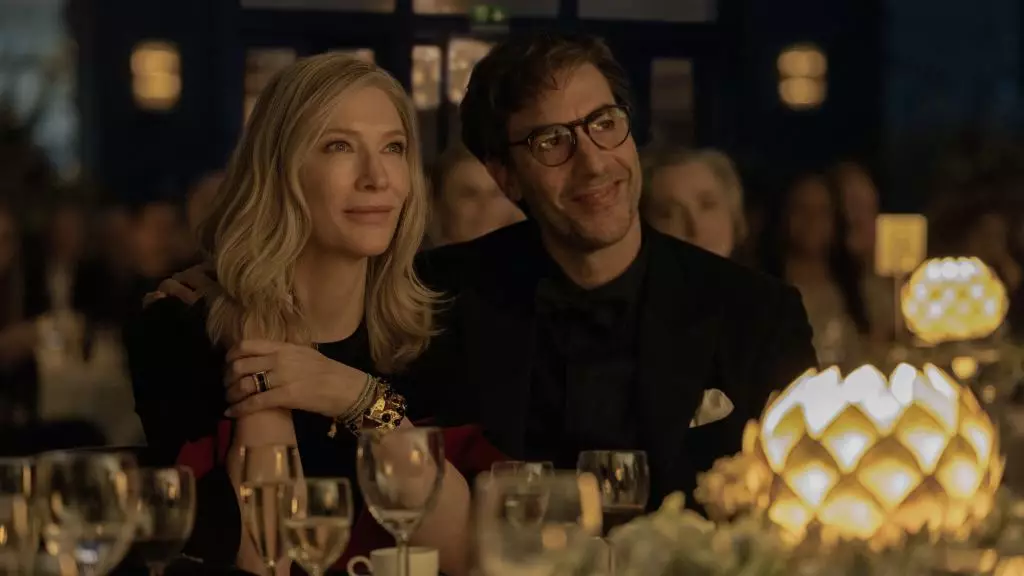David O. Selznick remains a contentious figure in Hollywood history, frequently noted for his uncompromising pursuit of perfection. His directiveness often manifested as a barrage of notes and destructive criticism directed at the filmmakers he collaborated with. This raises an intriguing question: how might Selznick and his contemporaries, such as Darryl F. Zanuck and Sam Goldwyn, respond to today’s rapidly evolving media landscape dominated by social media influencers, YouTubers, and streaming platforms? This inquiry is essential to understanding how the film industry is being reshaped and redefined in the digital age.
The production environment of classic Hollywood operated under a strict, hierarchical power dynamic. Filmmakers were often at the mercy of producers who dictated everything from casting choices to script changes, sometimes with little regard for the artistic vision of the directors. For instance, Selznick’s notorious interventions during the development of *Gone With The Wind* saw him replacing directors mid-production, reiterating his fundamental belief that only through meticulous oversight could films achieve success. The stark contrast between this model and the more collaborative, fluid communities fostered by contemporary filmmakers could not be more pronounced.
Alfonso Cuarón, on the other hand, epitomizes a modern documentary filmmaker pushing the boundaries of cinematic storytelling. His latest project, *Disclaimer*, has stirred varied responses from audiences and critics alike, igniting deep discussions about its intricate narrative structure. Starring heavyweights like Cate Blanchett and Sacha Baron Cohen, the series builds a complicated web of memory, trauma, and existential questions. Yet, the project is not without its detractors, some noting that the storytelling teeters precariously close to obfuscation rather than clarity.
In stark contrast to Selznick’s brute-force approach to storytelling, Cuarón imbues his work with nuanced themes that challenge viewers to engage more critically with the narrative. His reliance on flashbacks and voice-over narration attempts to transcend linear storytelling, posing questions about memory and subjectivity. However, this method has led some critics to suggest that following the story feels akin to navigating a dense, college-level literary analysis, leaving certain viewers feeling lost amid the weight of its complexity.
The Intersection of Old and New
While Cuarón has undeniably carved his path as an auteur, the undercurrents of the Hollywood production model persist. Traditional producers may have struggled with the messy, unpredictable nature of modern storytelling that seems far removed from the scripted, stage-managed narratives of earlier eras. Although Cuarón has established international acclaim through films such as *Roma* and *Y Tu Mamá También*, one can’t help but wonder how he would fare amidst the flurry of memos and constant meddling characteristic of Selznick’s regime.
The ethos of today’s filmmakers is often rooted in resistance to the kinds of creative control exercised by figures like Selznick. Newer creatives, such as Emerald Fennell and Margot Robbie, find themselves navigating a different landscape, bringing a fresh perspective to classic works like *Wuthering Heights*. They operate free from the historical constraints imposed by earlier generations of producers, suggesting an evolution in the creative process driven by both societal change and technological advancements.
As the film industry increasingly pivots towards streaming services, the role of the filmmaker continues to evolve. With platforms such as Apple+, Netflix, and Amazon Prime taking center stage, creators are afforded the freedom to tell stories that may have previously been stifled. *Disclaimer* managed to premiere successfully at the Venice Film Festival despite the troublesome stigma attached to many streaming projects. This dichotomy illustrates the shifting perspectives in the way audiences interact with content.
As Cuarón and contemporaries redefine storytelling, they also challenge the conventions established by the likes of Selznick, leading to a confrontation between nostalgia for the established norms of filmmaking and the innovative impulses of emerging creators. While the orchestration of Hollywood may have shifted dramatically, the push and pull between traditional values and progressive storytelling methods remains as crucial as ever.
Hollywood’s landscape is continuously evolving; the once-iron grip of figures like Selznick is giving way to a more democratized and collaborative environment. Creative forces like Alfonso Cuarón are redefining the essence of storytelling, inviting both challenge and engagement from audiences in unprecedented ways. While nostalgia for the past is natural, the imperative lies in embracing the innovation and distinct voices that the digital age presents. The future of cinema thrives on this delicate balance, fostering a dialogue between old ideals and new methodologies, generating narratives that ultimately resonate more with contemporary societies.
